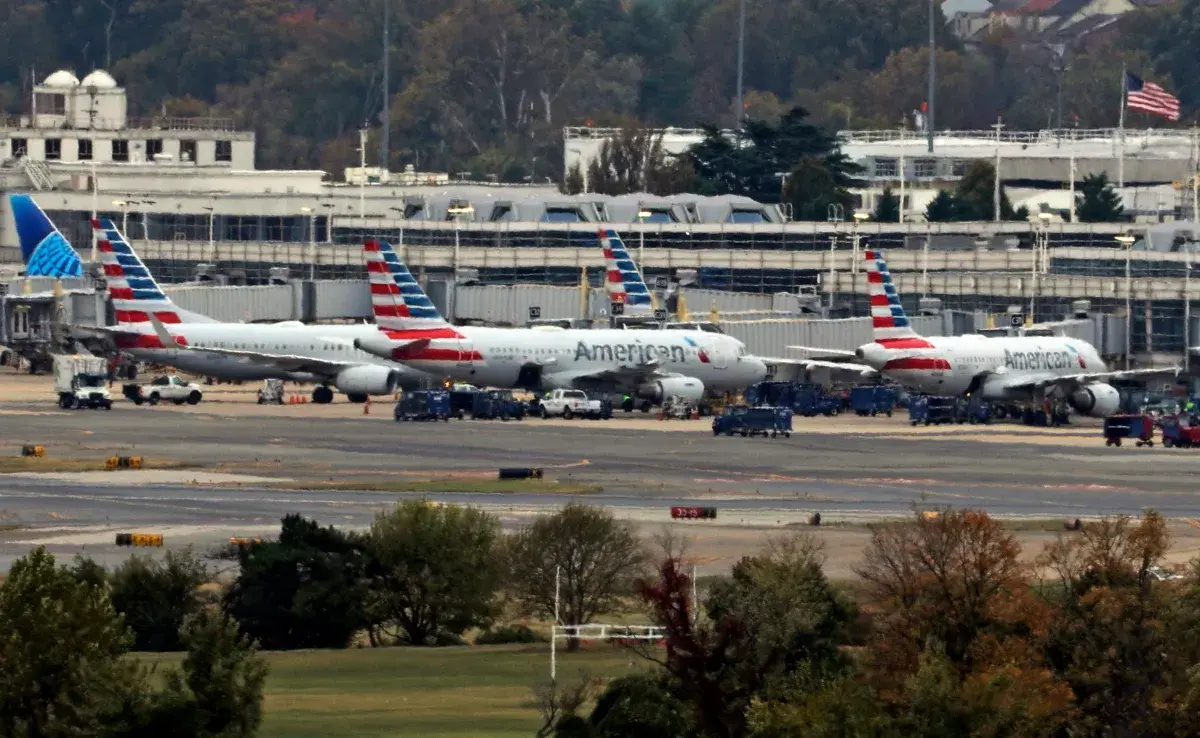Copyright Newsweek

The Federal Aviation Administration (FAA) issued a ground stop advisory on Sunday, as disruptions intensified across major U.S. airports amid a government shutdown now in its 33rd day. The FAA cited staffing shortages as the direct cause of the disruptions, noting a medium probability that delays would extend beyond initial timeframes. A spokesperson for the U.S. Department of Transportation told Newsweek on Friday," As Secretary Duffy has said, there have been increased staffing shortages across the system. When that happens, the FAA slows traffic into some airports to ensure safe operations." Why It Matters The government shutdown has forced 13,000 air traffic controllers (ATC) and 50,000 Transportation Security Administration (TSA) officers to work without pay, sparking staffing shortages at multiple airports, including the major hubs of Orlando, Florida; Dallas/Fort Worth; and Washington, D.C. Ground stops are among the most severe traffic management tools available, implemented only when system capacity is fundamentally compromised. The FAA's official documentation of 832 total minutes of delays across multiple facilities, combined with a medium probability of extension, signals that aviation officials anticipate disruptions may worsen rather than improve. The ripple effects extend beyond individual passengers to encompass the broader economy, affecting tourism, business travel, and industries dependent on air freight and passenger mobility. What To Know Newark Liberty International Airport in New Jersey experienced delays ranging from two to three hours, with the FAA documenting maximum individual flight delays of 75 minutes and an average delay of 38 minutes across affected facilities. Dozens of additional flights faced delays and cancellations at major hubs including Dallas Fort Worth International Airport, Chicago O'Hare, George Bush Intercontinental in Houston, and airports in San Francisco, Los Angeles, Denver, and Miami, according to flight tracking service FlightAware. New York City's Emergency Management office issued a public alert warning travelers to expect schedule changes, gate holds, and potential missed connections, urging passengers to check flight status before heading to airports and prepare for longer waits. The crisis stems from unprecedented staffing shortages compounded by the shutdown, operating within a system already managing a critical pre-shutdown shortage of approximately 3,000 controllers. Controllers face an untenable situation: reporting to work without compensation or making difficult decisions regarding their families' financial needs. The FAA's traffic management protocol requires slowdowns and ground stops when staffing falls below operational minimums—a measure designed to prioritize safety but one that directly causes passenger delays. The disruptions affect multiple departure facilities beyond Newark itself, including facilities serving the broader Northeast and Canadian airspace, demonstrating how regional shortages create cascading effects across the national air traffic system. What People Are Saying U.S. Transportation Secretary Sean Duffy said on CBS News' Face the Nation with Margaret Brennan on Sunday: “We work overtime to make sure the system is safe. And we will slow traffic down, you’ll see delays, we’ll have flights canceled to make sure the system is safe,” New York City Emergency Management office wrote on X on Sunday: "Newark Airport is under a ground delay program today because of staffing shortages in the control tower. Arrivals are being limited to as few as 20 planes per hour through this afternoon, with higher rates later tonight. The average delay is about 2 hours, and some flights are more than 3 hours late. FAA planning notes show a possibility of a full ground stop later if staffing shortages or demand increases." It added: "This will affect travel both into and out of the NYC area. Flights headed to Newark may be held on the ground at their origin airports, and departures from Newark may be delayed because gates stay occupied when arrivals are backed up. Delays at EWR often spread to JFK and LaGuardia so travelers flying to, from, or through NYC should expect schedule changes, gate holds and missed connections. Anyone flying today should check flight status before heading to the airport and expect longer waits." Vice President JD Vance said at the White House on Thursday: "Every single person I talk to, to a word, they are worried that the delays reach a point where it makes it very, very hard for the American people to fly." National Air Traffic Controllers Association (NATCA) President Nick Daniels in a press release on October 28: “NATCA shares in Secretary Duffy’s vision to supercharge controller hiring with the best and brightest candidates, and also fully funding the modernization and infrastructure efforts to transform the system into the NAS of the future. The sooner the shutdown ends, the sooner we can all get back to working together to advance these shared goals. In the meantime, controllers will continue to show up to ensure this country’s passengers and cargo arrive safely at their destination.” What Happens Next? Congress remains at a standstill over funding, meaning wages for federal workers remain on hold, as do vital services. Reporting from the Associated Press contributed to this article.



